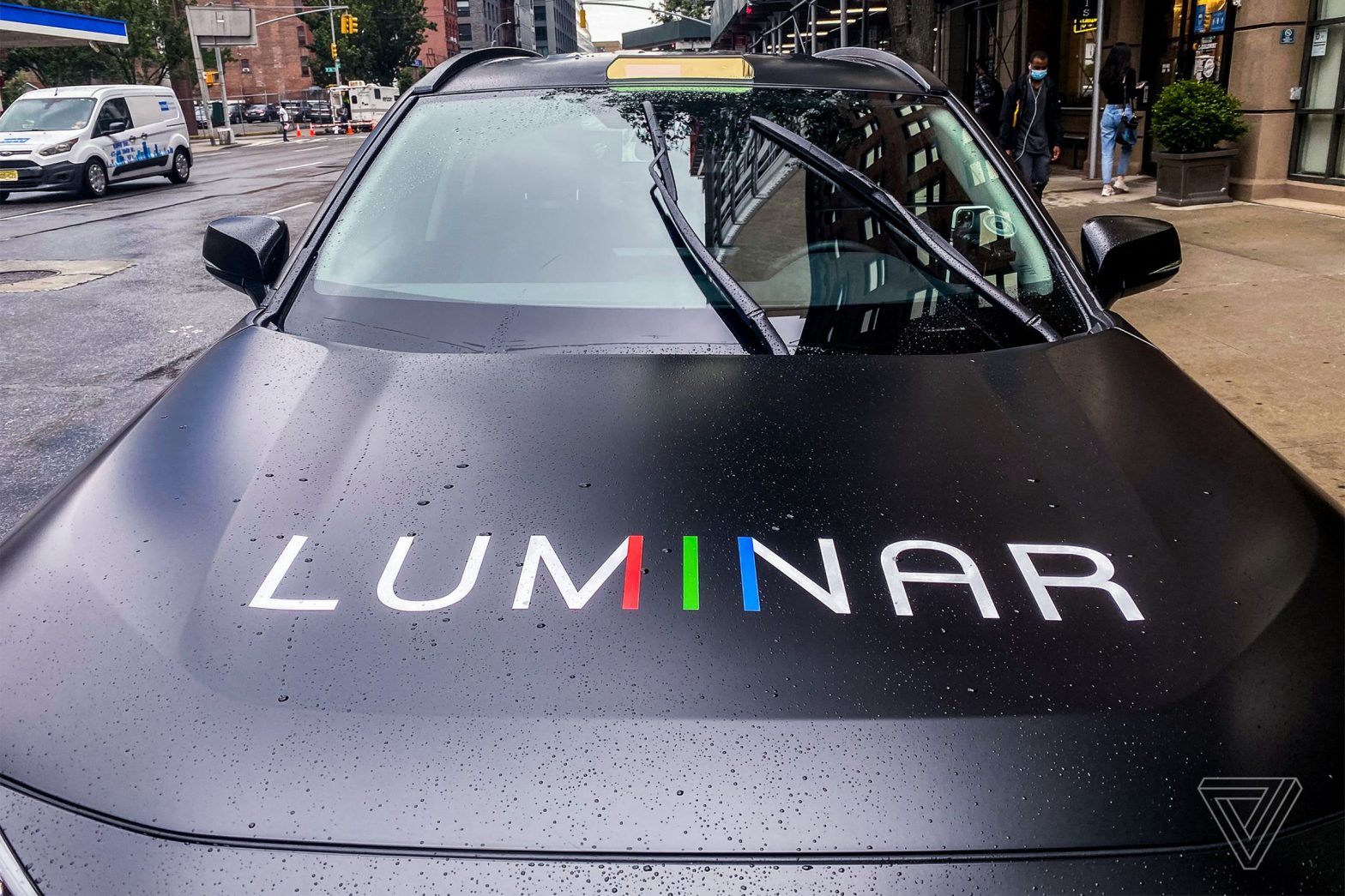/
The laser sensor company says it will acquire another lidar startup, open a high-volume manufacturing facility in Mexico, create a semiconductor subsidiary, and launch a new insurance product. Phew!
:format(webp)/cdn.vox-cdn.com/uploads/chorus_asset/file/22658744/VRG05AH_210614_4634_006.jpg)
Lidar maker Luminar held an investor day event in Orlando, Florida, during which it unveiled a new version of its Iris sensor that will be included in production vehicles from Mercedes-Benz. The company also announced a series of ambitious expansion plans, including a new factory in Mexico, a semiconductor subsidiary, and the acquisition of a data hardware startup’s lidar division.
Lidar, a key ingredient in autonomous driving, is a laser sensor that uses near-infrared light to detect the shapes of objects. This helps autonomous vehicles “see” other objects on the road, like cars, pedestrians, and cyclists, all without the help of GPS or a network connection.
Luminar revealed its Iris Plus lidar, which it said will further “the mission for enhanced vehicle safety and autonomous capabilities by enabling even greater performance and collision avoidance of small objects at up to autobahn-level speeds.” The sensor, which is designed to blend seamlessly into the roofline of a production vehicle, has 300 meters (984 feet) of range — an improvement on the previous model, which could detect objects at up to 250 meters.
:no_upscale():format(webp)/cdn.vox-cdn.com/uploads/chorus_asset/file/24467729/Luminar_Iris_Plus.gif)
Luminar is working with Mercedes on integrating the Iris Plus lidar into its vehicles, with mass production expected to launch in 2025. The company said it plans to open an additional manufacturing facility in Asia to support the production.
Luminar said it would acquire data storage company Seagate’s lidar division to “accelerate” its own lidar production process. The company also recently acquired Civil Maps in order to access that firm’s ultra-detailed and automatically updating 3D maps of various cities. With Seagate, Luminar is acquiring the company’s lidar-related IP, assets, and a technical team of employees.
In addition to a new facility in Asia, Luminar also said that a “dedicated, highly-automated, high volume manufacturing facility” in Mexico would come on line starting in the second quarter of this year. Celestica, the company’s contract manufacturer, will operate the facility when it opens. And Luminar is also expanding another facility in Thailand with contract manufacturer Fabrinet for the optical subassembly.
Luminar is also working with an AI company called Scale.ai to bolster its machine learning system for object detection. Luminar signed an exclusive partnership with Scale to gain access to the startup’s data labeling and AI tools.
The company announced the combination of its chip design subsidiaries Black Forest Engineering, Optogration, and Freedom Photonics into a new unified entity, Luminar Semiconductor. And lastly, Luminar said it would work with reinsurance company Swiss Re to launch an insurance program to explore how lidar can help drive down the cost of insurance through safety improvements.
Luminar has emerged as one of the more ambitious players in the still yet to be proven lidar industry. While internal turmoil and financial uncertainty grip its rivals, Luminar has secured commitments from a number of companies to purchase its lidars. In addition to Mercedes-Benz, the company has deals with Volvo, Audi, Toyota Research Institute, Intel’s Mobileye, Airbus, and two Chinese companies: automaker SAIC and AV operator Pony.ai.
